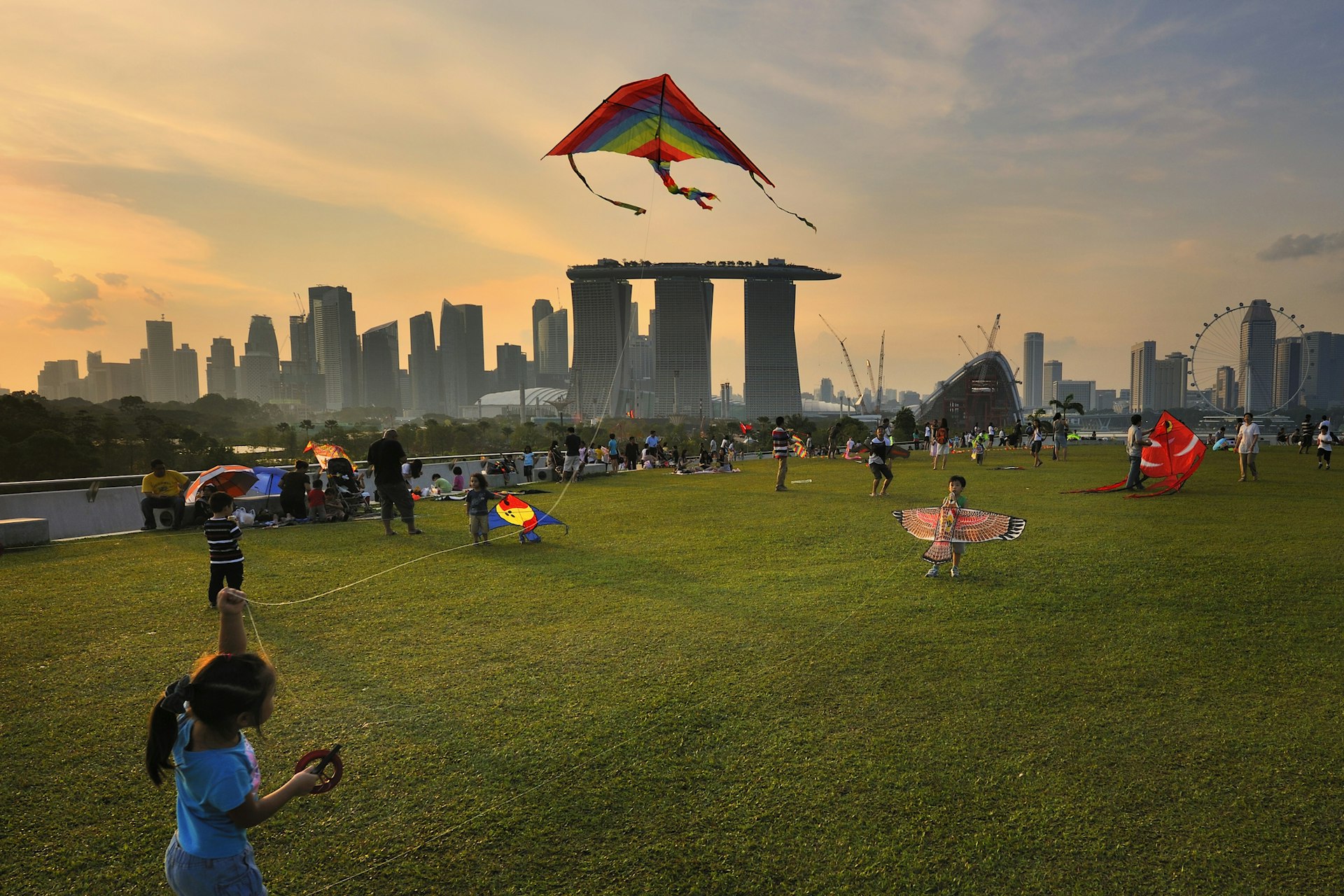
A visit to Singapore is a glimpse into the future. From its modern and almost surreal airport to its eye-catching and ever-changing skyline, it is continuously innovative.
Even though the tourist-entry requirements for most nationalities are quite straightforward, Singapore is famously known for being a state that is committed to the rulebook. What are the dos and don’ts when traveling to Lion City? Here’s our guide to entering Singapore, including what types of visas are available and the rules you’ll need to navigate for trouble-free travel.
Get more travel inspiration, tips and exclusive offers sent straight to your inbox with our weekly newsletter.  Singapore’s Jewel Changi Airport is often called the best in the world © Travel man / Shutterstock
Singapore’s Jewel Changi Airport is often called the best in the world © Travel man / Shutterstock
How do I know if I need a visa to visit Singapore?
The visa requirements for travel to Singapore depend on nationality, the number of days being spent in the country and the purpose of the visit. As a tourist, citizens of 164 different countries can enter Singapore for a period of 30 or 90 days without a visa.
All citizens of the European Union, Switzerland, Norway, the United Kingdom, Australia, New Zealand, South Korea, Japan and the United States get 90 days visa-free, while citizens of all other eligible countries can stay a maximum of 30 days without applying for a visa.
Travelers from a country that isn’t on the visa waiver list will have to apply for either an e-visa or a regular tourist visa, depending on their nationality. While e-visa applications can be easily done at any online e-visa provider and have a processing time of just one day, regular visas are a bit more involved, requiring travelers to get in contact with the nearest Singaporean diplomatic mission or apply for a visa through an agent.
 Singapore’s visa requirements vary based on nationality, among other factors © Ronnie Chua / Shutterstock
Singapore’s visa requirements vary based on nationality, among other factors © Ronnie Chua / Shutterstock
What if I need to travel to Singapore frequently?
The Frequent Traveller Programme and the APEC Business Travel Card are two programs that allow travelers from certain eligible countries to enter Singapore even more easily.
On the one hand, the Frequent Traveller Programme allows travelers from Australia, China, Hong Kong, Japan, South Korea, Malaysia, New Zealand, Thailand, the United Kingdom and the United States, under certain conditions, to use the automated clearance facilities at immigration – a process that significantly simplifies the entry process and helps frequent travelers avoid long wait times at peak hours.
On the other hand, holding an APEC Business Travel Card (ABTC) for Singapore is useful for business travelers, as they can visit the island without a visa for business trips for up to 60 days. The Singaporean ABTC is issued to certain business travelers who are citizens of the Asia-Pacific Economic Cooperation (APEC), among other conditions. Travelers can apply for this document online for a nonrefundable fee of US$100.
 Travelers to Singapore must meet several entry requirements © by toonman / Getty Images
Travelers to Singapore must meet several entry requirements © by toonman / Getty Images
What else do you need when visiting Singapore?
All travelers arriving in Singapore as a tourist must meet the following entry requirements:
- Valid passport (minimum validity of 6 months at the time of departure).
- Sufficient funds to sustain themselves during their stay in Singapore.
- SG Arrival Card
Unlike most other Southeast Asian countries, Singapore does not have a paper-based Disembarkation Card to be filled out on arrival in the country. Instead, all travelers (including those enrolled in the Frequent Traveller Programme) are required to submit an SG Arrival Card online, in which each traveler has to provide basic personal information, trip details and a health declaration – information that goes straight to Singapore’s immigration officials. An SG Arrival Card can be obtained via the SG Arrival Card app or at the official ICA website.
As of the 13th of February 2023, Singapore no longer has any Covid-19 entry requirements for travelers arriving in the state – that means no more proof of a negative test or vaccination status.
Finally, all travelers, including residents, who arrive in Singapore from countries with a risk of yellow fever transmission must present a yellow fever vaccine certificate. Travelers who do not have a valid yellow fever vaccination certificate are liable to be quarantined – at their own cost – for up to six days upon arrival in Singapore.
Will I get a stamp in my passport?
As of October 10, 2021, all travelers passing through immigration at Changi airport receive an electronic Visit Pass (e-Pass) via email rather than a passport stamp. The e-Pass contains details of the visit pass granted, including the maximum number of days and the last day each traveler is allowed to stay in Singapore.



